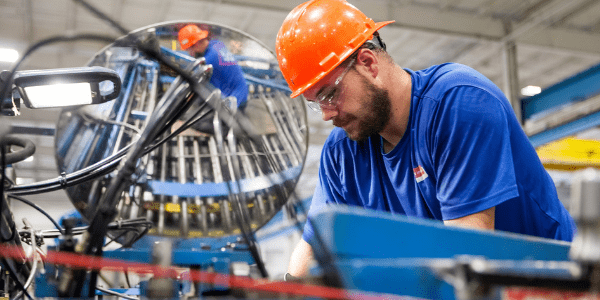CIOs and other C-suite executives will lead the digital transformation effort for the enterprises. They will witness certain challenges while implementing digital transformation solutions in their existing business systems. Though these challenges are mostly the same for all core industry sectors, we will focus on the manufacturing industry and dig deep into the challenges of digital manufacturing for CIOs.
Major Challenges for CIOs in Implementing Digital Manufacturing Solutions
Transforming the manufacturing industry is a herculean task for solution providers and manufacturers alike. Here are the top challenges for CIOs to address.
- Taking Support from Management
The first and foremost challenge in the way of CIOs is taking support from the management for integrating digital transformation solutions in the existing system. Though CIOs have better insights into the enterprise ecosystem, they need to ask CEOs and the management to make decisions. CIOs need to persuade the management team by giving the information about the right technology and tools for making an effective digital transformation strategy. With the support from the company management, CIOs can make the transformation process successful in the manufacturing sector.
- Handle Stakeholder Resistance
There is no exaggeration in mentioning that digital transformation requires a cultural change in the enterprise. Now, it is a CIO’s responsibility to take the new programs to the stakeholders and get their approval. But, this is a big challenge as most employees, customers, and even other C-level executives may not in favor of changing the way they work for a long time.
Adoption of new technology and tools takes some time in the manufacturing company and the CIO has to address the stakeholders’ resistance during the transformation process. With transparent and effective communication with stakeholders frequently, CIOs can overcome this challenge.
- Improvement in ROI
CIOs are accountable for the manufacturing company’s productivity and ROI (Return on Investment). With this, they are responsible for ensuring seamless operations across the manufacturing company. Digital transformation planning should be capable of achieving these objectives. CIOs need to ensure that the entire production process remains painless and productive for the company. Here also, they can suggest the management the right technology or ways to invest that contribute to increasing ROI over the period.
Digital transformation is an ongoing process and it is necessary for enterprises to give it some time for showing its capability to increase ROI and overall productivity.
- Adoption of Advancements
Though many entrepreneurs are ready to jump on the digital transformation bandwagon, every company does not need it. It is an IT team that determines which technology should be updated or revamped. Implementation of technological advancements is a cumbersome process and requires a huge budget. Their, in-house IT team can help managers address the challenges related to the adoption of advancements. It can make the operations more efficient with ease.
Also Read: IoT app development: Why should you keep an eye on security vulnerabilities?
- Fill the Gap in Skills
The manufacturing industry also needs a long time to transform all the core processes digitally like other industries. In the entire process, skilled resources can play a vital role to ensure the success or achievement of objectives. But then, many companies are still laking talented resources and when it comes to the digitization of processes, this gap in the skills can ruin everything.
Therefore, CIOs need to fill the skill gap before initiating the digital transformation process in the manufacturing company.
- Secure Confidential Data
Data security is a need of the hour for every enterprise globally. While digitizing the core manufacturing processes, a huge volume of data is collected from different processes. Many manufacturing companies have a robust IoT network in place that can fetch data from multiple touchpoints and servers. Altogether, the company’s confidential data need to be secured while digitizing all the processes. Be it connected devices or AR-based solutions for remote assistance, it is necessary to safeguard the data.
This should be one of the top priorities of every CIO and they should work dedicatedly to address this challenge.
- Address Regulatory Changes
The last but important challenge for CIOs is to remain compliant with prevalent laws and regulations. While integrating digital transformation solutions in the manufacturing industry, CIOs have to ensure that these solutions are in line with the existing laws. It is better to predict the regulatory changes in advance so that the company remains profitable while following the standards effectively. It is a CIO’s job to make the manufacturing enterprise ready for existing regulations and future changes while transforming all the processes digitally.
CIOs can use their domain expertise and assist developers to build robust transformation solutions in line with the prevalent regulations. They can also modify the solutions to make the manufacturing processes compliant with the changes in laws or standards.
In a nutshell, the year 2021 is going to be a year for opportunities for CIOs in manufacturing companies. All they need to overcome the shortcomings or challenges of implementing digital transformation solutions in the sector.
Eva Jackson is a content cum digital marketer at Rejig Digital a Digital Transformation Solutions & IIOT Solutions provider. She is an avid reader and likes to remain updated for the latest Augmented Reality Remote Assistance and Industrial IOT trends. Her articles are informative and interesting at the same time.

